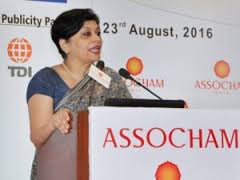 The Central Board of Direct Taxes (CBDT) has announced extension for the due date for filing of Income tax returns by tax payers whose accounts are required to be audited under the Income Tax Act is the 30th September of the following year.
The Central Board of Direct Taxes (CBDT) has announced extension for the due date for filing of Income tax returns by tax payers whose accounts are required to be audited under the Income Tax Act is the 30th September of the following year.
The tax payers whose business receipts exceed by Rs 1 crore or professional receipts exceed Rs 25 lakh during the previous year 2015-16 are required to file an Income Tax return accompanied by an audit report by the above mentioned due date.
However, taking into consideration that the last date for making declarations under the Income Declaration Scheme 2016 is also 30th September, 2016, the Central Board of Direct Taxes has decided to extend the last date for such returns which were due on September 30, 2016 to October 17, 2016 in order to remove inconvenience and to facilitate ease of compliance.
The Order of CBDT vide F.No.225/195/2016-ITA-H dated 9 th September, 2016, under Section 119 of the Income Tax Act,1961and the Press release from the Ministry of Finance extending the due date to 17 October, 2016 is as below.
F.No.225/195/2016-ITA-H
Government of India
Ministry of Finance
Department of Revenue
Central Board of Direct Taxes
North Block, ITA.II Division New Delhi, the 9th September, 2016
Order under Section 119 of the Income-tax Act, 1961
The last date for making declarations under the Income Declaration Scheme 2016 is 30th September, 2016 which coincides with the last date of filing Income-tax returns by the tax payers whose accounts are audited and who are required to furnish the returns of income for Assessment Year 2016-17 by 30th September, 2016 as per provisions of section 139 (1) of Income tax Act, 1961.
In order to remove inconvenience and to facilitate ease of compliance, the Central Board of Direct Taxes, in exercise of powers conferred under section 119 of the Income-tax Act, 1961, hereby extends the ‘due-date’ for furnishing such returns of Income from 30th September, 2016 to 17th October, 2016, in case of tax payers throughout India, who are liable to furnish their Income-tax return by the said ‘due-date’.
(Deepshikha Sharma)
Director to the Government of India
============================================
Government of India
Ministry of Finance
Department of Revenue
Central Board of Direct Taxes
New Delhi, 9th September, 2016
Press Release
Sub :- CBDT Extends due date for filing of Income Tax Returns – reg
The due date for filing of Income tax returns by tax payers whose accounts are required to be audited under the Income Tax Act is the 30th September of the following year. The tax payers whose business receipts exceed Rupees One Crore or professional receipts exceed Rupees twenty-five Lakh during the previous year 2015-16 are required to file an Income Tax return accompanied by an audit report by the above mentioned due date.
However, taking into consideration that the last date for making declarations under the Income Declaration Scheme 2016 is also 30th September, 2016, the Central Board of Direct Taxes has decided to extend the last date for such returns which were due on 30th September, 2016 to 17th October, 2016 in order to remove inconvenience and to facilitate ease of compliance.
(Meenakshi J Goswami)
Commissioner of Income Tax
(Media and Technical Policy)
Official Spokesperson, CBDT.



